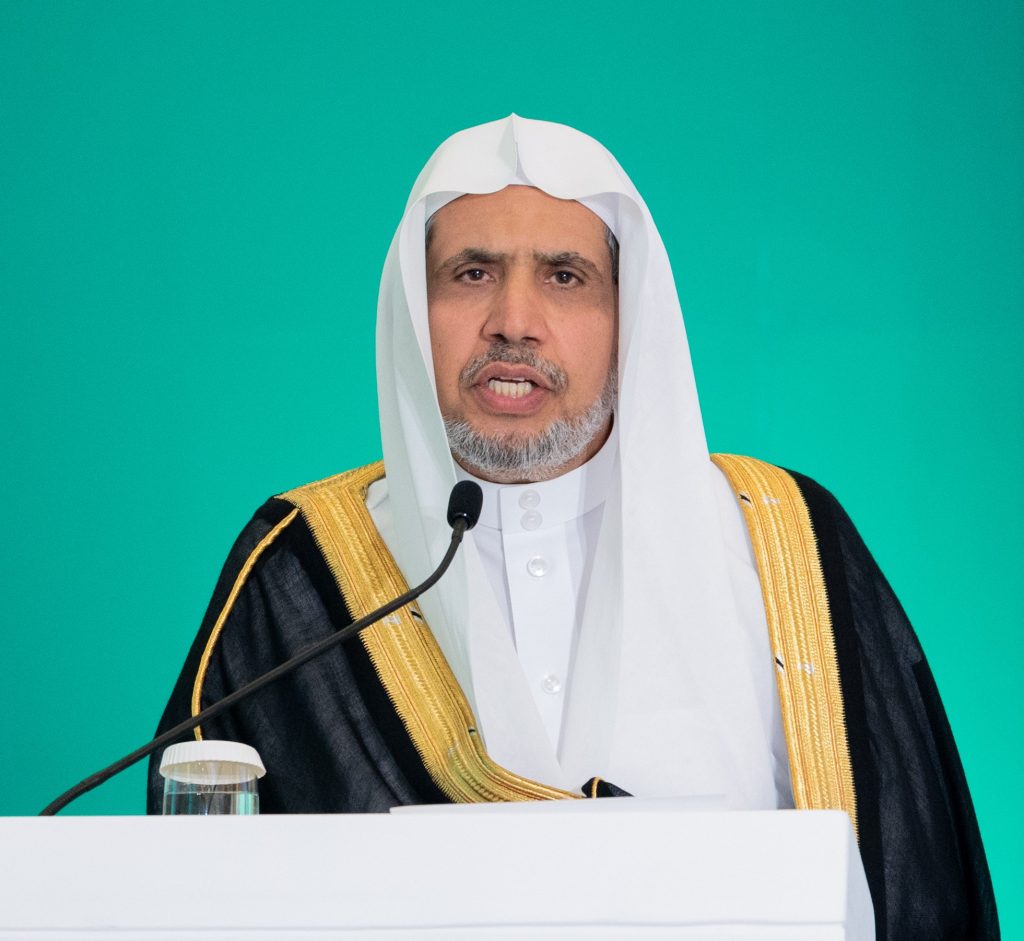
By NTF Team
This weekend, Makkah wasn’t just the spiritual heart of Islam; it became the epicenter of a pioneering summit aimed at healing the rifts that have long segmented the Muslim community. Spearheaded by the Muslim World League, under the visionary leadership of Sheikh Dr. Mohammed bin Abdulkarim Al-Issa, the Global Conference for Building Bridges between Islamic Schools of Thought and Sects carved out a new narrative in the quest for Islamic unity.
Amid the contemplative ambiance of Ramadan, this wasn’t your average scholarly meet-up; it was a decisive stride toward knitting together a fragmented ummah. The Muslim World League, seizing the moment under Sheikh Al-Issa’s direction, heralded a fresh chapter for a community too often defined by its divisions rather than its unity.
The summit’s heart lay in the ‘Charter of Cooperation and Brotherhood’, transcending being a mere document to act as a clarion call for unity across the Islamic spectrum. Yet, such a pioneering move navigates through treacherous waters. The Islamic world, a kaleidoscope of belief systems and historical narratives, faces the daunting task of bridging centuries-old divides, requiring a blend of diplomatic savvy and a profound understanding of the intrinsic complexities.
The conference’s roster, boasting around 300 Islamic scholars and luminaries from across the globe, mirrored the ummah’s rich diversity. With representatives from the Sunni, Shia, and Sufi traditions, the event encapsulated the vast expanse of Islamic thought, underscoring the importance of inclusive dialogue for achieving reconciliation and unity.
The diversity of the conference’s attendees, spanning regions from Iran to Indonesia and Egypt to Malaysia, amplified its global relevance. It positioned the issues of sectarianism and division not as isolated challenges but as global hurdles for the ummah to overcome.
The event was graced by the presence of distinguished figures in the Islamic world, each contributing a wealth of theological insight. Notables such as the Grand Mufti of Saudi Arabia, Sheikh Abdulaziz Al-Asheikh; the Grand Mufti of Egypt, Sheikh Dr. Shawki Ibrahim Allam; and Ayatollah Sheikh Ahmed Mobaleghi from Iran lent the conference an authoritative breadth of Islamic jurisprudence and philosophy.
These scholars, revered not just as religious leaders but as pivotal figures in Islamic jurisprudence, wield considerable influence over the interpretation and application of Islamic teachings within their communities. The participation of such a wide array of perspectives, from Sunni to Shia, emphasized the conference’s commitment to fostering a truly inclusive dialogue.
However, this journey toward unity is fraught with hurdles. The initiative, blessed by the holy month of Ramadan and the leadership of the Muslim World League, teeters on the edge of a significant shift in intra-Muslim dialogue. The endeavor to promulgate the ‘Charter of Cooperation and Brotherhood’ across diverse Muslim communities is ambitious, highlighting the summit’s profound potential for impact.
Championed by King Salman and Sheikh Dr. Mohammed bin Abdulkarim Al-Issa, the Makkah summit marks a pivotal moment in the effort to bridge the Islamic world’s divides. Its legacy will be determined not by immediate outcomes but by its long-term influence on fostering tolerance, dialogue, and unity. As a landmark event, it stands as a powerful testament to the possibility of a united Islamic world, poised to contribute to global peace and cooperation.






